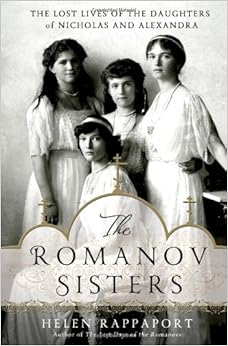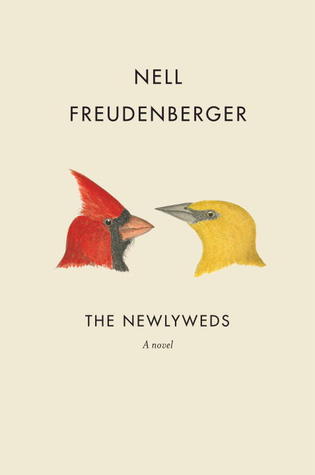A fast-paced story with endless twists and turns, Joel Dicker's
The Truth About The Harry Quebert Affair had me hooked form the beginning.
A story within a story within a story, the novel centers around Marcus Goldman, a writer who returns to his college professor mentor as he experiences the writer's disease and finds himself unable to write.
Reunited with the reknowned Harry Quebert at his New Hampshire home, Goldman is swept up in a series of events that kicks off with the body of a girl that is found buried on Quebert's property.
The girl is Nola Kellargan, who disappeared from Somerset, NH at the age of 15, over three decades ago.
It soon comes to light that the then 34-year-old Quebert had had a love affair with Nola.
Somerset is rocked in scandal and Quebert sent to jail. Convinced of Quebert's innocents, Goldman returns to Somerset to clear his mentor's name.
Teamed up with the local Sergeant Perry Gahalowood, Goldman uncovers many secrets that will keep the reader guessing until the very end.
Each character is so nuanced, that I never lost track of anyone despite the large cast of characters in the 600+ page novel.
Memorable characters include Luther Caleb, Elijah Stern, Jenny Dawn, Tamara Quinn, Robert Quinn, Travis Dawn, Chief Pratt, Nancy Hattaway, Roy Barnaski, David Kellerga, and of course, Ernie Pinkas.
Framed by the 31 rules of writing that Quebert imparted onto Goldman, the twists and turns and second-guessing do not just pertain to who murdered Nola Kellergan, but almost everything else in between.
Even the Acknowledgement is an unexpected surprise.
It has been awhile since I've stayed up late during the
week night to read a book (specifically, since the Girl with the Dragon
Tattoo series and
Gone Girl), but I read for three hours straight because I could not put down the book.
A 27-year-old Swiss man who spent his summers in New England, Dicker has written an incredibly original story that captures small-town Americans so well.
The best person to observe a group is an outsider, who is unfamiliar with customs and habits and will pick up on the slightest nuances. This is what Dickers did as a Swiss spending his summer in the States.
To add to the international background of the novel,
The Truth About The Harry Quebert Affair was originally written in French.
Harry Quebert's 31 Rules for Writing:

31. The first chapter, Marcus, is essential. If the readers don't like it, they won't read the rest of the book.
30. Your second chapter is very important, Marcus, it has to be incisive, hard-hitting.
29. Everyone knows how to writ, but everyone is a writer... Nobody knows he's a writer. It's other people who tell you.
28. Life is a long drop, Marcus. The most important thing is knowing how to fall.
27. Anytime you have doubts about what you're doing, go outside and run. Run until you can't run anymore. Run until you feel that fierce desire to win being born within you.
26. The reason writers are such fragile beings, Marcus, is that they suffer from two sort of emotional pain, which is twice as much as normal human beings: the heartache of love and the heartache of books. Writing a book is like loving someone. It can be very painful.
25. "How does one become a writer, Harry" By never giving up.
24. You see, boxing and writing are similar. You get in the guard position, you decide to throw yourself into battle... A book is more a less the same. A book is a battle.
23. "And the characters? Where do you get the inspiration for your characters?" From everyone. A friend, a cleaning lady, the bank clerk. But be careful: it's not the people themselves who provide your inspiration, but what they do.
22. Because the writer's disease isn't an inability to write anymore: it's being incapable of stopping.
21. Marcus, do you know what is the only way to know how much you love someone? By losing them.
20. Victory is within you. All you need is to want to let it out.
19. Writers who spend all night writing, addicted to caffeine and smoking hand-rolled cigarettes, are a myth, Marcus. You have to be disciplined... There are exercises to to be repeated, at certain times of the day. You have to be persistent, you have to maintain a good rhythm, and your life has to be perfectly ordered.
 |
| The author, Joel Dicker |
18. In our society, Marcus, the most admired men are those who build bridges, skyscrapers, and empires. But in reality, the proudest and most admirable are those who manage to build love. Because there is no greater or more difficult undertaking.
17. That when you have an idea, rather than immediately turning it into one of your unreadable stories..you should not let it out. You should nurture it inside you, allow it to ripen until you feel it's the right moment... Turn your ideas...into illuminations.
16. "Harry, how long does it take to write a book?" That depends. On everything.
15. Words are for everybody, until you prove that you are capable of appropriating them. That's what defines a writer. You see, Marcus, some people would like you to believe that a book consists of relationships between words, but that's not true: It is in fact about relationships between people.
14. You see, Marcus, the way it works in our society, we are constantly having to choose between reason and passion. Reason never helps anyone, and passion is often destructive.
13. The danger of books, Marcus, is that sometimes you lose control of them. When you are published, the thing that you have written in such solitary fashion suddenly escapes from your hands and enters the realm of the public. This is a moment of great danger; you must keep control of the situation at all times. It is disastrous to lose control of your own book.
12. Learn to love your failures, Marcus, because it is your failures that will make you who you are. It is your failures that will give meaning to your victories.
11. You should box like you write and write like you box: You should give everything you have because each match, like each book, might be your last.
10. Writing means being able to feel things more strongly than other people do and to communicate those feelings. Writing means allowing your readers to see things they sometimes can't see. If only orphans wrote books about orphans, we'd never get anywhere... And if a writer had to limit his writing to his own experiences, literature would be impoverished and lost all its meaning. We're allowed to write anything that affects us. And no one can judge us for that. We're writers because we do one thing differently, one thing that everyone around us knows how to do: write. All the nunaces reside there.
 |
| One of the three French literary prizes awarded to the book. |
9. The words are good, Marcus. But don't write in order to be read; write in order to be heard.
8. Who dares, wins. Think about that motto, Marcus, whenever you are faced with a difficult choice. Who dares, wins.
7. Cherish love, Marcus. Make it your greatest conquest, your sole ambition... After books, there will be other books. After glory, there will be other glory. After money, there will be yet more money. But after love, Marcus, after love, there is nothing but the salt from tears.
6. You see, Marcus, words are good, but sometimes they're not enough. There comes a time when some people don't want to hear... When words lose their power, you have to throw a few punches.
5. A new book, Marcus, is the start of a new life. It's also an act of great generosity: You are offering, to whoever wishes to discover it, a part of yourself... You're writing it for all those who, in their daily lives, will enjoy a sweet moment because of Marcus Goldman. You say that doesn't sound like much, but it's actually quite something. Some writers want to change the world. But who can really change the world?
4. When you get to the end of the book, Marcus, give your reader a last-minute twist... Because you have to keep them on tenterhooks until the end. It's like when you're playing cards: you have to hold a few trump cards for the final part of the game.
3. Your life will be punctuated by a succession of major events. Mention them in your books, Marcus. Because if the book turns out to be bad, they will at least have the merit of recording a few pages of history.
2. Sometimes you'll feel discouraged, Marcus. That's normal. I told you that writing was like boxing, but it's also like running. That why I keep sending you out to pound the pavement: If you have the moral courage to run a long way, in the rain, in the cold, if you have the strength to keep going until the end, to give it all you have and to reach your goal, then you're capable of writing a book. Never let fear or fatigue stop you. On the contrary: You should use them to help you keep going.
1. The last chapter of the book, Marcus, should always be the best.
 A light, quick read, Younger is an entertaining story that revolves around the theme of stay-at-home moms versus career women.
A light, quick read, Younger is an entertaining story that revolves around the theme of stay-at-home moms versus career women.







